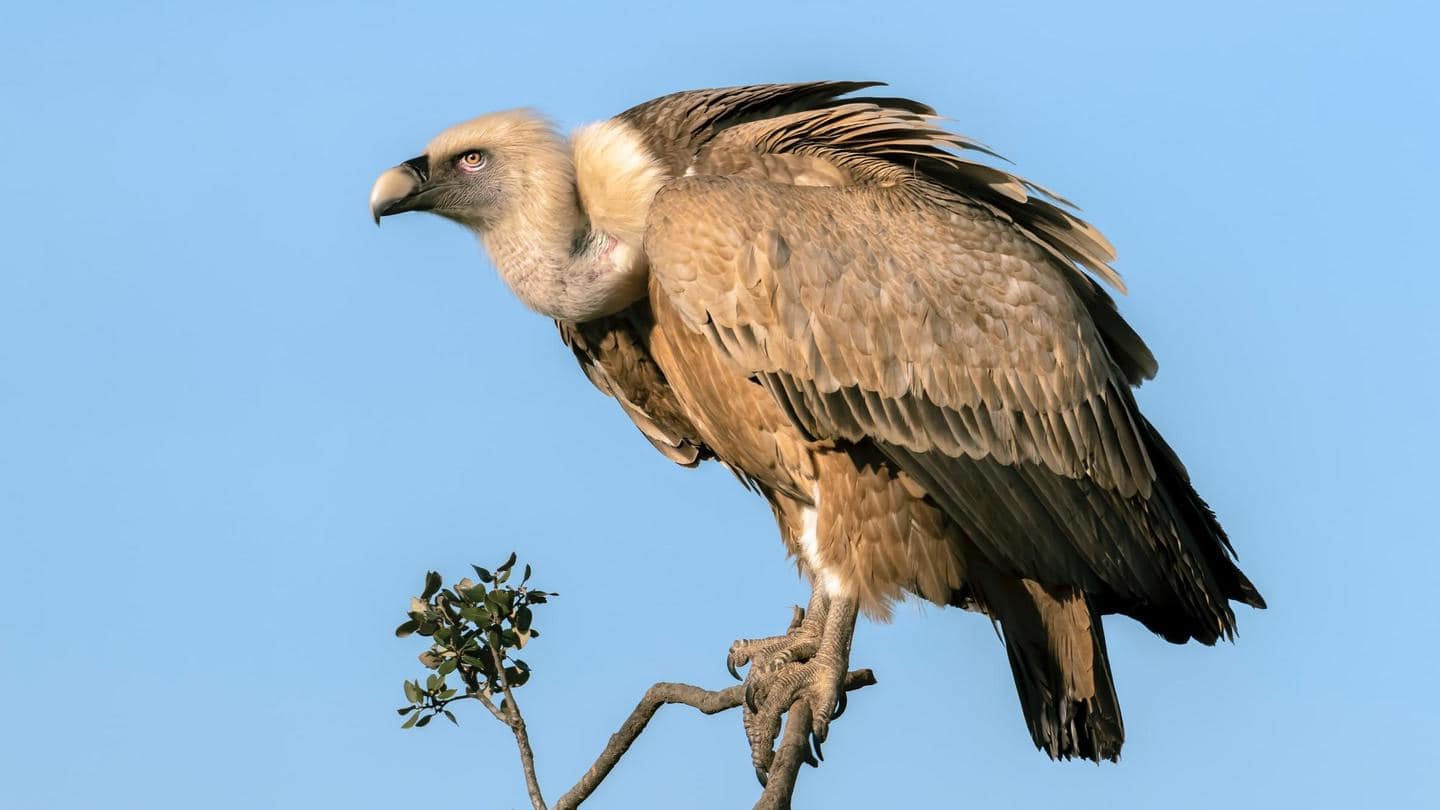
Tripura to launch vulture conservation program to prevent extinction
What's the story
The forest department of Tripura will soon launch a project in Khowai district to breed endangered vulture species through a "vulture conservation and artificial breeding" program. The decision was taken in wake of the higher concentration of vulture population in Khowai, officials told PTI. They added that vultures from other states would be brought in to assist with artificial breeding.
Context
Why does this story matter?
Vultures were nearly extinct in Tripura a decade ago, but the population is currently increasing due to the efforts of the forest department. The white-rumped vulture which is found in Tripura has been listed as "critically endangered" by the International Union for Conservation of Nature (IUCN). There was a massive decline in the population of vultures in the Indian subcontinent in the 1990s.
Quote
Around 30-40 vultures were sighted in Khowai district: Official
"The project would soon be set up at Padmabil area in Khowai district with money sanctioned by the central government. There would be artificial breeding by bringing vultures from Haryana and then the offspring would be released in wild," Divisional Forest Officer (DFO) of Khowai, Niraj K Chanchal, told PTI. "Recently around 30-40 vultures were sighted in the district," he added.
Details
How did the number of vultures increase in Khowai district?
It was found that planting leafy Shimul trees along the riverbank improved the ecosystem for the vultures, which had previously been degraded due to deforestation, said Chanchal. The scavengers have also adapted to food scarcity in the region. "We also launched an awareness campaign among the locals for planting more Shimul trees, because the vultures roost in such leafy trees," said Chanchal.
Prediction
'Vultures can only be saved through the program'
The vultures can be saved from extinction only through the Conservation Breeding Program, Principal Chief Conservator of Forest (PCCF), DK Sharma told PTI. "If 150 pairs of each of the three species could be held and bred in captivity, it would be possible to get a derived population of 600 pairs of each of the three species," he said.
Quote
All vulture species were listed as 'Critically Endangered' in 2000
"The populations of Oriental White-backed Vulture and Long-billed Vulture had declined by more than 92% between 1991-93 and 2000," Sharma said. "By the year 2007, the population had declined by an astonishing 99.9 % for Oriental White-backed Vultures and by 97% for long-billed and slender-billed vultures. All three vulture species were listed by IUCN in 2000 as 'Critically Endangered'," he added.
Decline
Why did the population of vultures decline?
Human incursion and lack of food, according to ornithologist Prasenjit Biswas, are the main causes of the reduction of the vulture population. "Human corpses are rarely dumped in the open, while animal carcasses are also now safely disposed off. This has deprived the vultures of their food source," he said. Notably, Biswas has been monitoring vultures' movement and behavior for more than a decade.
Do you know?
The decline of vultures was first documented by BNHS
The decline of vultures was first reported by the Bombay Natural History Society (BNHS) in 1996-1997. Between 1991 and 1993, the BNHS performed nationwide raptor surveys in several parts of India, and the survey was repeated in 2000, with unexpected results.